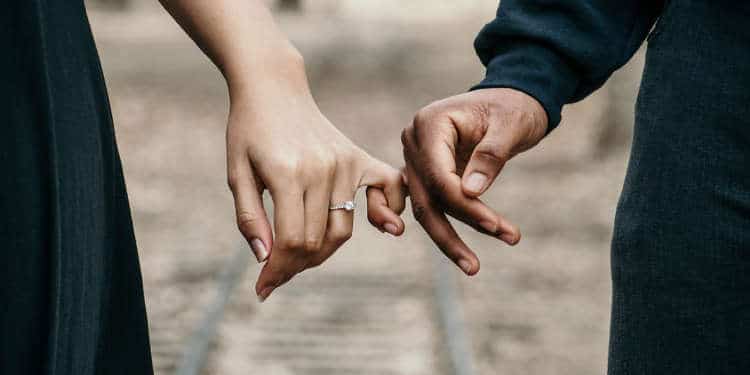











When you’re in a relationship with someone, you will hurt your partner at some point. You will also be hurt by your partner at some point. Whether intentional or not, it’s hard and painful when one partner hurts the other. When you’re the one who hurt your partner, it’s a tough spot to be in. You want to make things better but sometimes you don’t know what to do. Repairing damaged relationships takes both parties to be willing to put in the work to fix it. After being hurt, everyone has their own process to go through to work through the hurt they experienced. If you want to support your partner during this process, here are 5 ways to comfort them:

Acknowledging your mistake is the first step to healing and repairing your relationship. You need to take responsibility for your actions and acknowledge the hurt you caused your partner. This means being honest with yourself and your partner about what happened and how it affected them. Acknowledging your mistake means you’re committed to fixing it and willing to work towards healing and growth.
When you acknowledge your mistake make sure to:
By doing this you’re showing your partner you value their feelings and are committed to rebuilding trust in your relationship.
Validating your partner’s feelings is key to the healing process. You need to acknowledge and accept their feelings even if you don’t agree with their point of view. Validation means you’re committed to understanding and being with your partner’s emotions.
When you validate their feelings make sure to:
By validating your partner’s feelings you’re helping them feel heard and understood which is a big part of the healing process.
This might seem obvious but it’s a must. When you hurt someone, you need to acknowledge it, own it, and apologize. Even if you didn’t mean to hurt them, an apology helps. Asking for forgiveness takes it a step further. It shows humility and remorse and validates your partner’s feelings and experiences.
Giving your partner space and time to process their emotions is key after a hurtful incident. It’s important to respect their boundaries and let them heal at their own pace. This means giving them physical and emotional space, not pressuring or demanding, and being patient and understanding.

When you give space and time make sure to:
By giving your partner the space and time they need you’re showing respect for their healing process and the overall health of your relationship.
Some people need space after being hurt. Don’t assume that’s what they need. Pay attention to their non-verbals (i.e. walking away or not responding to messages). But when in doubt, ask them if they want space from you. It acknowledges they might need some time to heal and lets your partner decide what they need.
At some point, most people want some kind of affection. It might be a hug, holding their hand, or cuddling them. Everyone’s timing is different so pay attention to non-verbals and be in tune with your partner’s preferences. But again, when in doubt, ask if they want a hug or to be held instead of assuming.
At the end of the day, it’s helpful to ask your partner what they need from you. This question can help from the moment when they’re hurting. It can give you guidance on how to comfort them. It can also be a question that can give comfort long-term. Asking what you can do in the future can show your partner you’re committed to not hurting them the same way.
When you talk to your partner about how you can do differently in the future, it’s nice to tell them you’ll work on not repeating the same behavior that hurt them. It’s helpful for them to hear that and even helps them heal from the hurt they feel.
As much as people don’t want to hurt their partner, it will happen. Knowing what you can do to comfort your partner after you hurt them can make them feel safe and secure in the relationship as they move forward.
While your first instinct in these situations may be to focus on what actions you can take to fix things, the work does not end there. Repairing your relationship also includes allocating some headspace to the situation and giving thought to the factors outside of just appeasing your partner.
Managing negative feelings is key to the healing process. You need to acknowledge and address negative emotions like anger, resentment, and bitterness. This means being honest with yourself and your partner about your feelings and working through them.
When you manage negative feelings make sure to:
By positively managing negative feelings you can work towards a healthier relationship with your partner.
Supporting your partner’s mental health is key to the healing process. You need to put their well-being first and provide a safe and supportive space for them to heal. This means being patient and empathetic, and seeking outside help if needed.
When you support their mental health make sure to:
By supporting your partner’s mental health you’re supporting their whole being and your relationship.
As much as people do not want to hurt their partners, it will happen throughout a long-term relationship. Knowing what you can do to comfort your partner after you have hurt them can help them feel safe and secure in the relationship as you work to move forward.
Sources